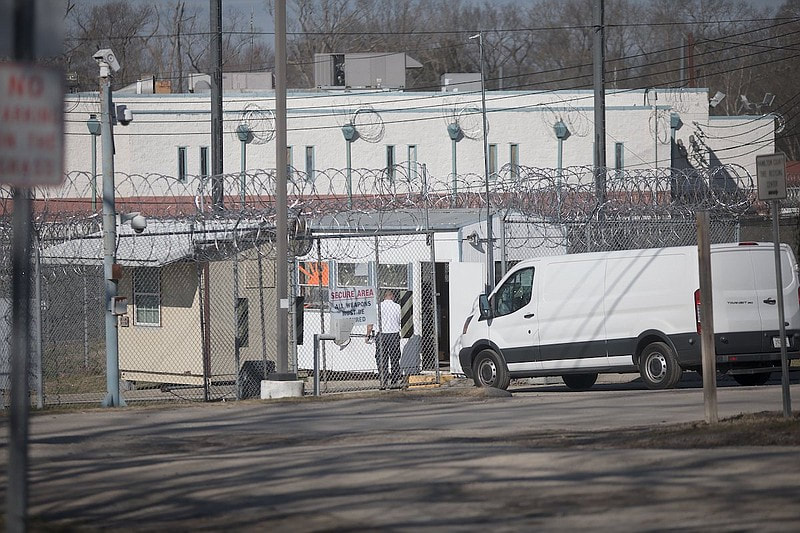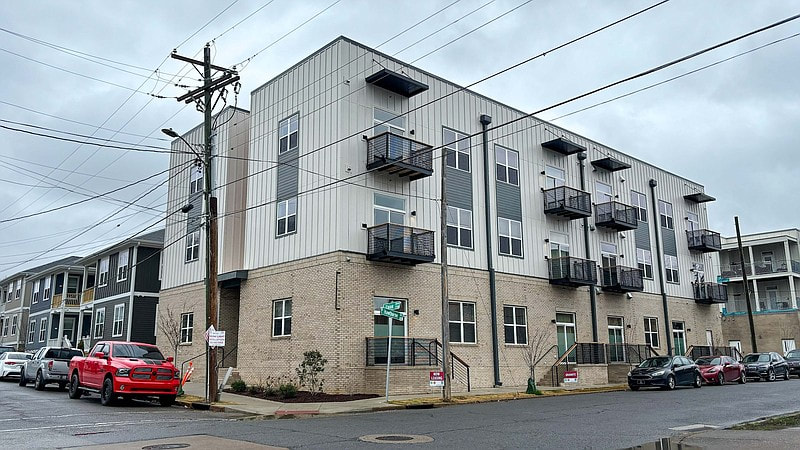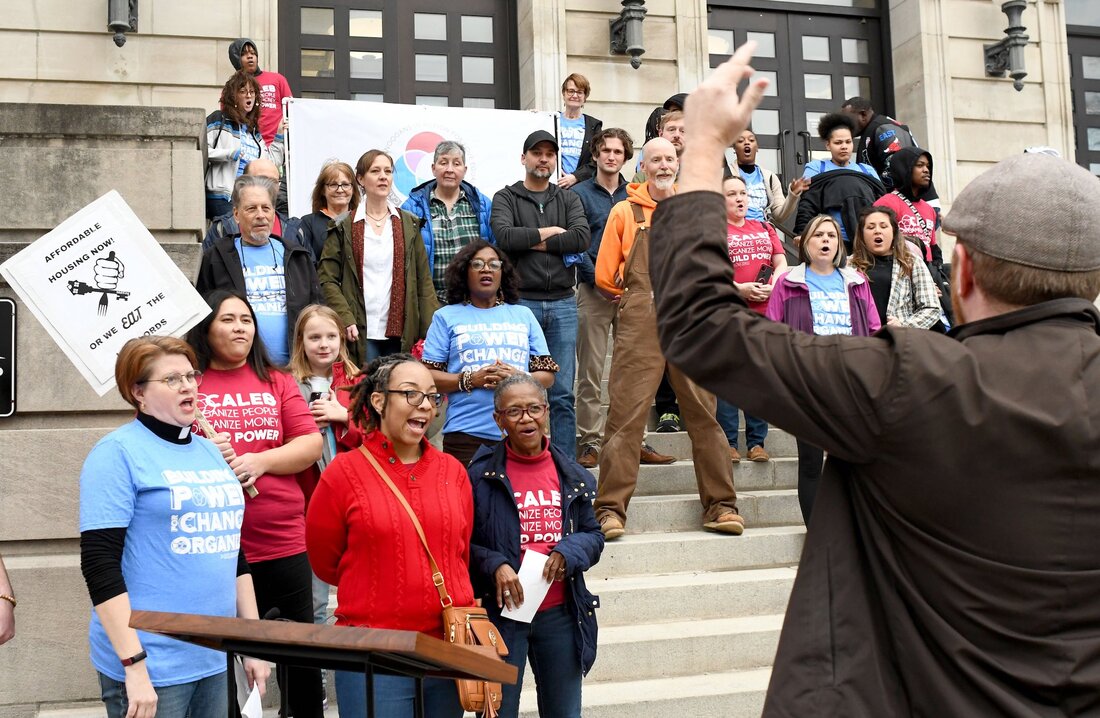Hamilton County bond practices are allegedly violating the law and in need of change, advocates say3/27/2024 Staff Photo / A van is received by a guard at the Silverdale Detention Center, since renamed the Hamilton County Jail, in 2020 in Chattanooga. Hamilton County residents discussed bail reform Tuesday night. Many who are accused of crimes in Hamilton County are allegedly having their constitutional due process rights violated when bail is set — keeping more people in jail for longer stretches of time, advocates and a civil rights attorney said.
"The law as it's written is pretty great, but we all know that is not what is happening," Kiah Duggins, an attorney with Civil Rights Corps, said at a community meeting. "Even if you're found innocent, your whole life has been destabilized." Nonprofit Chattanoogans in Action for Love, Equality and Benevolence hosted Duggins and other advocates Tuesday night at the Camp House to discuss navigating bail reform in Hamilton County. Duggins has been speaking with General Sessions Judge Larry Ables, Chief Magistrate Lorrie Miller, the public defender's office and county Commissioner Warren Mackey, D-Lake Vista, about changing allegedly illegal bond practices, including not providing attorney representation when bail is set and long pretrial detention periods, she said. Recently, a federal court in the Eastern District of Tennessee ruled defendants are entitled to certain protections prior to trial. Since Hamilton County falls within that district, Duggins and other advocates said they hope stakeholders will fall in line with the ruling without the threat of a lawsuit. Those accused of crimes are entitled to assistance of attorneys, a finding on whether bail is unaffordable and a barrier to release, a finding on whether the bail amount is necessary to ensure the defendant's appearance, disclosure of the evidence, and the ability to confront and cross-examine witnesses, according to the federal ruling. Read more...
1 Comment
Staff photo by Olivia Ross / Mai Bell II, an affordable housing complex in Highland Park, is seen on Friday, March 1, 2024. The lack of affordable housing has exploded into one of the most challenging problems facing America's cities.
Mayors across the country are being pressured to address the lack of affordability in the housing and rental markets. For a number of reasons, that task is easier said than done. According to home and apartment search engine Zillow, Tennessee rental prices in February averaged at $1,733 a month and inched up to $1,740 in March. That monthly cost is too burdensome for many families; remember that the average household income in Tennessee is a little more than $60,000, according to Census data. According to city data, Chattanooga is expected to have a shortfall of 7,000 affordable units by 2030. And between 2016 and 2021, one out of every four rental homes became unaffordable to households earning $35,000, according to data from the group Chattanoogans in Action for Love, Equality & Benevolence. Since 2021, the cost of rent has increased 30% — outpacing the 13% growth in household incomes. In 2022, Hamilton County saw the largest annual rent increase in the past decade, the Chattanooga Times Free Press previously reported. Chattanooga officials have heard the demand for more affordable housing, and after months of work, have developed several strategies to incentivize development of these housing units. Read more... Staff Photo by Robin Rudd / Activist Michael Gilliland, right, leads a cheer of "affordable housing now" as Chattanoogans In Action for Love, Equality & Benevolence held a news conference Feb. 22 on the Chattanooga City Hall steps. One of the tools Chattanooga officials use to encourage developers to build affordable housing may have broken down.
"Our current policy doesn't work especially well for anyone, neither the city, taxpayers nor private developers," Chattanooga City Council Vice Chair Jenny Hill, of North Chattanooga, said in a phone call. "It's a pretty inflexible program." As is, housing developers in Chattanooga can receive a tax break from the city if they ensure at least half the units in a project are affordable for people making at most 80% of the area median income, which city officials estimate is nearly $51,000. Additionally, the total value of construction must be $5 million. "It's really hard to make that work," Chief Housing Officer Nicole Heyman said in a phone call, which means few developers take advantage of it. The incentive reduces the property taxes developers must pay on a new project for a period of time in exchange for them meeting those specific conditions. Hoping to forgo the one-size-fits-all approach, the mayor's office is now proposing a new system under which tax breaks would be directly tied to the number of affordable units developers include in their projects. The Chattanooga City Council is set to vote on the changes in the coming weeks and heard a presentation of the plan Tuesday. Rather than requiring developers to meet strict prerequisites, the city would allow builders to receive a tax break based on the individual number of affordable units they want to include in a housing development. There would need to be at least 10 units in the building for it to qualify. The city would relieve at most $2 million in taxes per year across all projects. Additionally, property owners would be required to submit rents and income verification to the city annually, and Chattanooga would be able to conduct interior inspections of those units with violations resulting in a $5,000 fine per noncompliant apartment. Read more... |
ABOUT
CALEB is an institutional coalition of faith-based, labor, and community groups working to build power to affect change in Chattanooga, TN. Archives
May 2024
Categories |




 RSS Feed
RSS Feed